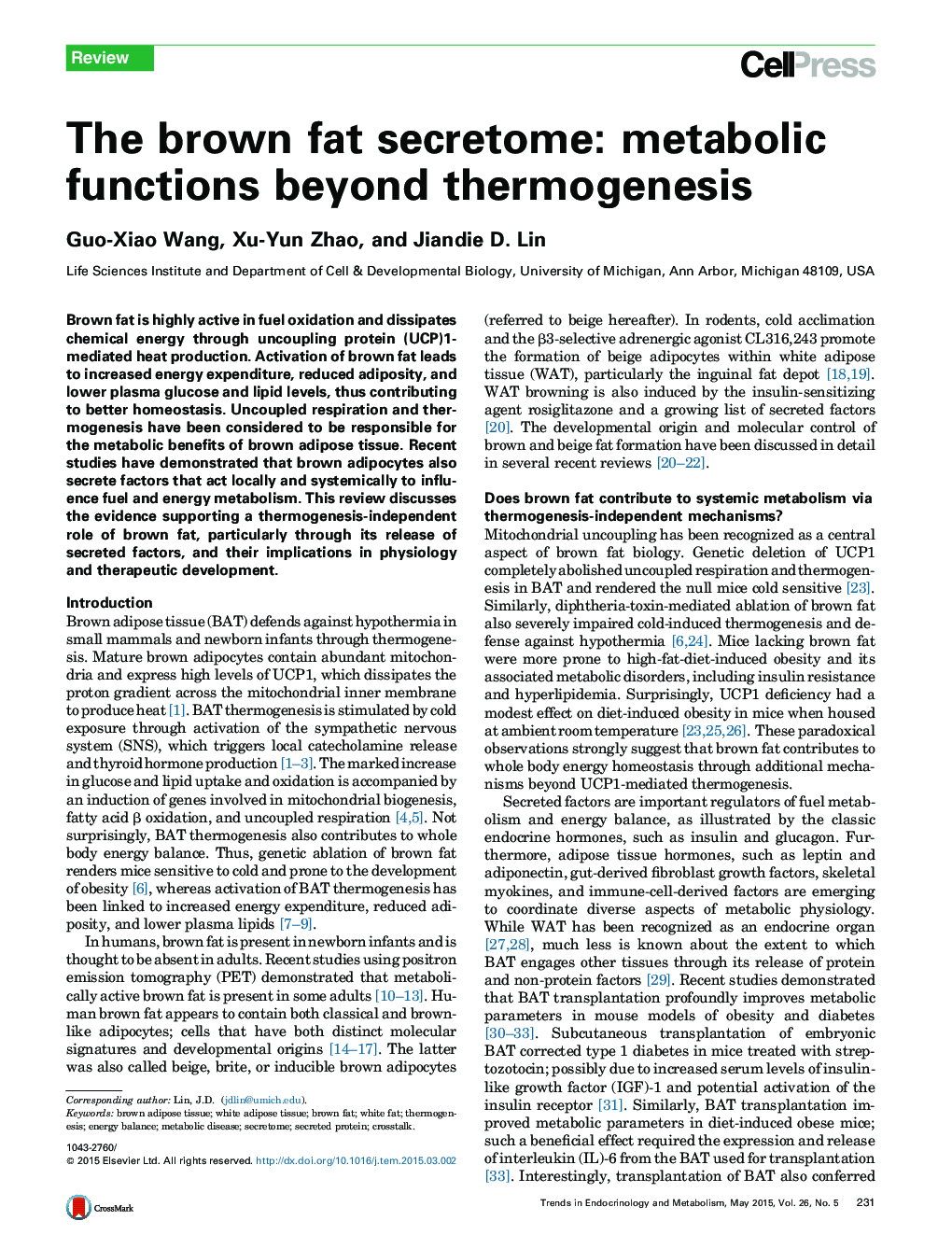| Article ID | Journal | Published Year | Pages | File Type |
|---|---|---|---|---|
| 2810203 | Trends in Endocrinology & Metabolism | 2015 | 7 Pages |
•Brown fat contributes to systemic metabolism via thermogenesis-dependent and -independent mechanisms.•The brown fat secretome incudes Nrg4, FGF21, and BMPs, among others.•The brown fat secretome may coordinate metabolic adaptation during thermogenesis.•Developing novel therapies based on brown fat thermogenesis may target the extracellular factors released by brown fat.
Brown fat is highly active in fuel oxidation and dissipates chemical energy through uncoupling protein (UCP)1-mediated heat production. Activation of brown fat leads to increased energy expenditure, reduced adiposity, and lower plasma glucose and lipid levels, thus contributing to better homeostasis. Uncoupled respiration and thermogenesis have been considered to be responsible for the metabolic benefits of brown adipose tissue. Recent studies have demonstrated that brown adipocytes also secrete factors that act locally and systemically to influence fuel and energy metabolism. This review discusses the evidence supporting a thermogenesis-independent role of brown fat, particularly through its release of secreted factors, and their implications in physiology and therapeutic development.
